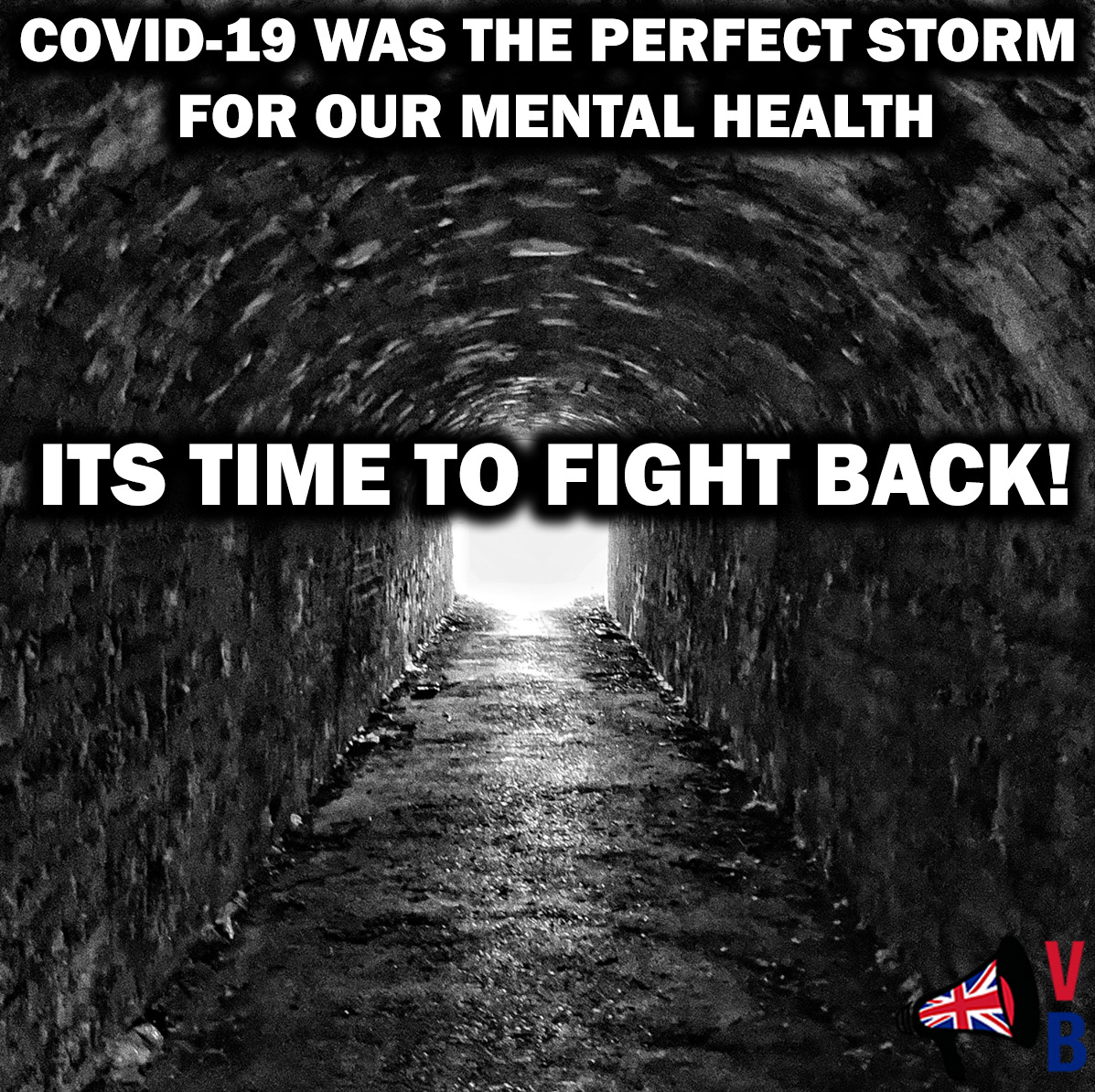The COVID-19 pandemic has thoroughly battered the physical and mental health of millions in the UK, and elsewhere on this little planet. Voice Britannia has asked Mike Stafford to write a few articles on mental health, how the pandemic can damage it, and most importantly, how we can all find a few minutes of tranquillity.
It’s a bitter irony, really.
The pandemic has brought mental health to the forefront of everyone’s mind. After four gruelling months, people broadly now understand that mental wellbeing is much like physical wellbeing; there is a spectrum of states, ranging from the ‘profound, urgent mental health crisis’ up to ‘deeply contented and comfortable.’ Unfortunately, our new-found awareness of mental health has arrived almost entirely as a result of us being placed under exceptional pressure. As well as the obvious medical, logistical and economic challenges posed by COVID-19, we’re faced with a truly perfect storm of mental health challenges.

In simple terms, the recipe for good mental health consists of healthy work/life balance, good diet and exercise, an active social life, positive relationships, and rewarding leisure pursuits.
Over the last four months, the pandemic has waged war with all of us on all of these fronts. Good diets have been blasted out of the water, as amateur bakers strip the shelves clean of flour. Social lives have, for the most part, been kicked into the realm of Zoom, WhatsApp and FaceTime.

Many leisure pursuits have been entirely off-limits, with venues either closed or subject to reduced capacity. Positive relationships have been put under extreme strain, as the pressure of living through an epochal crisis (two crises if you live in Britain) is vented on our nearest and dearest.
This, of course, is just the obvious stuff. Dig a little deeper to understand the various horsemen of the mental health apocalypse, and you’ll see the pandemic couldn’t have been more deleterious to our psychological wellbeing if it had been designed by a Bond villain. Three of the most common manifestations of mental ill-health are anxiety, depression and anger, and each of these can be dialled up to eleven by current circumstances.

Take anxiety, for example, that thought-racing, chest-quaking, pulse-pounding horror show that comes as a result of worry, fear or uncertainty. COVID-19 has created a situation in which fear and uncertainty stalk every moment of our lives. Depression, likewise; motivation is sapped by the monotony of life in lockdown; self-esteem is dented by detachment from our hobbies (or from our beauticians), and hopelessness is a constant reality in a world where COVID-19 robs us of plans for a richer leisure life.
Furious anger is a serious risk in the pandemic; our patience is sapped away by a thousand daily frustrations (longer queues, thwarted plans, financial headaches), and even for those well-versed in mitigating their anger, regular outlets are often off-limits. Also – and I say this with complete seriousness – being gaslighted by the government on a constant basis is a source of genuine anger for anyone who puts fairness at the centre of their worldview.
Nevertheless, there are steps we can and must take to protect our mental wellbeing. Speaking as someone who has been wrestling hard with his own mental health over the last couple of years, I’d start with the following five steps –
- Recognise and accept the pressure COVID is putting on us all. Pay attention to your thoughts and feelings. Anger, depression or anxiety are understandable responses, but they aren’t desirable. Acknowledge them, and don’t just hope they’ll go away.
- Exercise. Physical and mental health are linked; exercise releases hormones like dopamine and serotonin that make us feel mentally better.
- Do something you love. Reading, writing, handicrafts, home improvement; anything that you do purely for the love of it will improve your mental health, building self-esteem and giving focus beyond the day-to-day grind.
- Sleep. A good night’s sleep is the mind and body’s best opportunity to recharge itself. Treat yourself like you would your phone, and ensure you’ve got all the charge you need.
- Talk to someone about how you’re feeling. Friends and family are far more likely to be understanding, sympathetic and supportive than they are to be judgemental. Remember – they also have a mind that needs to be kept healthy; we all suffer from time to time, and we can all help each other get through it.

Follow us on Facebook and Twitter and tell us what you think!
If you are currently facing any sort of issues with your own mental health, do not suffer in silence. The NHS is here for you, as is Voice Britannia! We may be a seemingly-inert website, but we have active social media channels and a forum! Sometimes, just chatting to someone can be the best medicine.
Mike will be back with more incite and advice next week!


